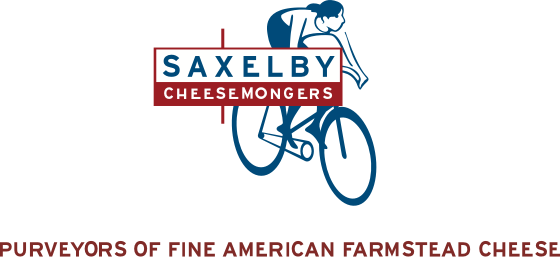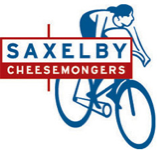
Two of the country's most decorated cheeses come from a mom and pop creamery in Dodgeville, Wisconsin. Uplands Cheese Company only makes the two: the nutty, caramelly Pleasant Ridge Reserve (plus an extra aged version) and the lush and luxurious Rush Creek Reserve. All of Uplands' milk comes from their own herd of mixed breed cows that's been closed since the 1990s. That means they breed their own cows with no outside genetics, to tightly control how their animals perform in the pasture and yield milk in the barn. The result is a company that sets the standard for American artisan farmstead cheesemaking. Have we mentioned that the first batch of the year's cold-weather-only Rush Creek Reserve just arrived for the season?
Uplands was established by two dairy farming couples in 2000 who had combined herds and resources a few years prior. Mike and Carol Gingrich and Dan and Jeanne Patenaude were big believers in the power of pastured dairy, and they found that their mixed perennial pasture in the Uplands region of Wisconsin yielded excellent milk for rich Alpine style cheeses.
Pleasant Ridge Reserve is one of the best American cheeses made in that lineage. Its toasted almond notes give way to a fragrant fruitiness with undercurrents of brown butter caramel. A varied pasture diet, well bred cows, and meticulous technique are required to make cheese like this, and it didn't take long for cheese lovers to take notice. Later the creamery introduced Rush Creek Reserve, a seasonal style made when the cows come in from the pasture for fall and switch to hay. This spikes the butterfat in the milk, producing an indulgent creamy base for the bark-wrapped cheese with flavors of hazelnut and smoked meat.

"We’ve all seen companies get their first taste of success and then compromise their original approach as they find ways to grow," says Andy Hatch, the current owner of Uplands. "That didn’t happen here. Mike and Dan were able to walk the line." Hatch began an apprenticeship at Uplands when he was 26, and in 2014 he and his wife Caitlin bought the creamery from the Gingriches and Patenaudes along with another couple, Scott and Liana Mericka. Hatch made the cheese while Scott Mericka managed the herd. They aimed to walk the same line that Mike Gingrich and Dan Patenaude did, refusing to compromise on quality. This summer the Merickas sold their stake in Uplands to the Hatches, but the farm and creamery remain true to the original vision: raw milk from a single herd of cows fed on pasture to make outstanding cheese.
How do you run a farmstead creamery with just two labor-intensive cheeses in an ever-more-competitive dairy market? You do it carefully, says Hatch, with an eye towards constant improvement and efficiency. Despite demand from cheese buyers across the country, Uplands has grown slowly. They still milk their cows seven days a week and only make as much cheese as they can while maintaining quality. Hatch and a small core of staff who've been there more than decade continually tweak their process in the cheesemaking and aging rooms. "We’re farmers. We’re thrifty and ever more efficient," he says. "We haven't raised the price of Pleasant Ridge in 13 years and have doubled in growth in that time."

The company could certainly sell more cheese, but doing so would require major investment in additional aging space. Pleasant Ridge Reserve requires six to 11 months to develop its full flavor and wheels are constantly inspected, flipped, brushed with salt, and tested for progress. It takes keen eyes and palates to manage this process, and that expertise is difficult to scale.
"The pressure to compromise comes from the pressure to grow faster than we otherwise might in order to afford the infrastructure we need to maintain quality," Hatch explains. When the company does invest in infrastructure, it's to expand the capacity of its human experts. A wrapping machine for wheels of Rush Creek Reserve, for instance, allows the team to increase their production while focusing more on technical aspects of cheesemaking and aging.
It's harder to maintain meticulous control of a pasture full of 1,000-pound dairy cows, but the Uplands crew believes that great cheese begins in the field with healthy cows that graze on diverse grasses, shrubs, and herbs. "There’s some real challenge in pasture-based farming in the degree you’re subject to the weather," Hatch mentions. "But there's also a lot of resiliency in this system with mixed perennial pastures." Cows on the farm graze on rotated lots so the pasture has time to recover. Mike Gingrich and Dan Patenaude adopted rotational grazing techniques back in the '80s. By keeping a closed herd, Uplands can control every aspect of their cows' genetic health. "Our cows live outside year-round," Hatch continues. "They are so tough and resilient."

Minute changes in the season, the weather, and what plants are growing all affect the milk from the herd, so even though the cheesemaking process is the same year after year, the crew is always making tiny adjustments in the creamery and aging cave. This year's weather was wet and hot early in the season, then dry in the fall. Hatch is excited about how that feeds into the 2025-2026 class of Rush Creek Reserve. Batches in recent years have been very good, he says, but this one is set to be spectacular.
Having tasted our first batch of the year, we're inclined to agree. If you want to experience what great American farming and cheesemaking can produce, Uplands is a smart place to start.
Try Uplands Cheese Company's award winning cheeses!
Photos courtesy of Uplands Cheese Company. Rush Creek Reserve photo shot by Kevin J. Miyazaki.

